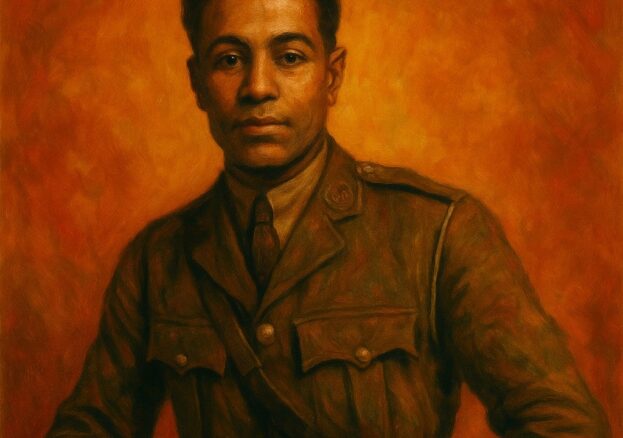
Walter Daniel John Tull (28 April 1888 – 25 March 1918) is remembered as one of the most remarkable figures of early twentieth-century Britain. He broke barriers in professional football and in the British Army, achieving milestones that few believed possible for a man of mixed heritage at that time. His life story combines talent, courage, resilience, and tragedy — but above all, it reflects the enduring theme of standing firm in power and pride.
Walter was born in Folkestone, Kent, the second son of Daniel Tull, a carpenter from Barbados, and Alice Elizabeth Palmer, an Englishwoman. His parents both died when he was still a boy, leaving Walter and his brother Edward to be raised in London. Edward was adopted by a family of dentists and later became the first Black dentist in the UK, while Walter remained in the Bethnal Green Orphanage. Life there was strict, but it also gave him opportunities to develop his passion for sport. Football quickly became his outlet and his talent was obvious.
By his late teens, Walter was playing for Clapton F.C., a respected amateur club in east London. In 1909, his ability was spotted by Tottenham Hotspur, who signed him as a professional. This made him one of the very first Black professional footballers in Britain, following trailblazers like Arthur Wharton and Willie Clarke. Tull’s debut was promising, but he was forced to endure vile racial abuse from opposing fans. At a match against Bristol City in 1909, a local newspaper condemned the behaviour of the crowd, calling it “a cowardly attack in language lower than Billingsgate.” Such abuse was routine, but Walter remained dignified and calm, never retaliating. His resilience earned respect from his teammates and admiration from journalists who praised his skill and composure.

In 1911, Walter signed for Northampton Town, where he became a key player and appeared in more than 100 games. The club’s manager, Herbert Chapman, later one of the most famous figures in English football, valued Tull’s intelligence on the field and his steady character. Had the war not intervened, he would likely have gone on to play at an even higher level.
When the First World War broke out in 1914, Walter enlisted in the Footballers’ Battalion, part of the Middlesex Regiment. He served on the Western Front and quickly proved himself as a natural leader. Despite army rules that supposedly prevented men of “non-European descent” from holding commissions, Walter was promoted. In May 1917, he was commissioned as a Second Lieutenant, making him the first Black infantry officer in the British Army . His promotion was a remarkable achievement in a society still scarred by racial prejudice.
Tull led his men through some of the most gruelling battles of the war, including the Somme and Passchendaele. Reports from those who served under him describe him as calm under fire and deeply respected. Tragically, during the Spring Offensive of March 1918, Walter was killed while leading his company near Favreuil in northern France. He was 29 years old. His body was never recovered, but his name is inscribed on the Arras Memorial, alongside thousands of others who gave their lives.
Walter Tull’s legacy continues to inspire. In football, he is celebrated as a pioneer who paved the way for Black players in the professional game. In military history, he is recognised as a man who broke barriers in a rigid system, proving that courage and leadership mattered more than race. Northampton Town erected a memorial to him, schools and playing fields bear his name, and campaigns continue to call for him to be awarded the Military Cross, which many believe he was recommended for. In 2018, the centenary of his death, tributes were paid by the Football Association, the Army, and community groups across Britain.
